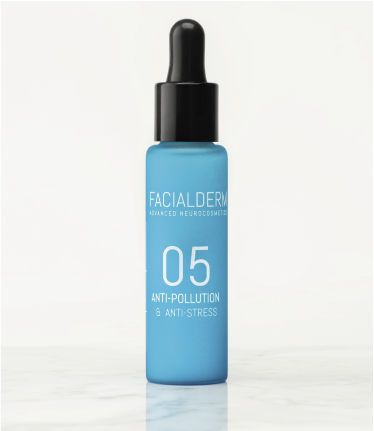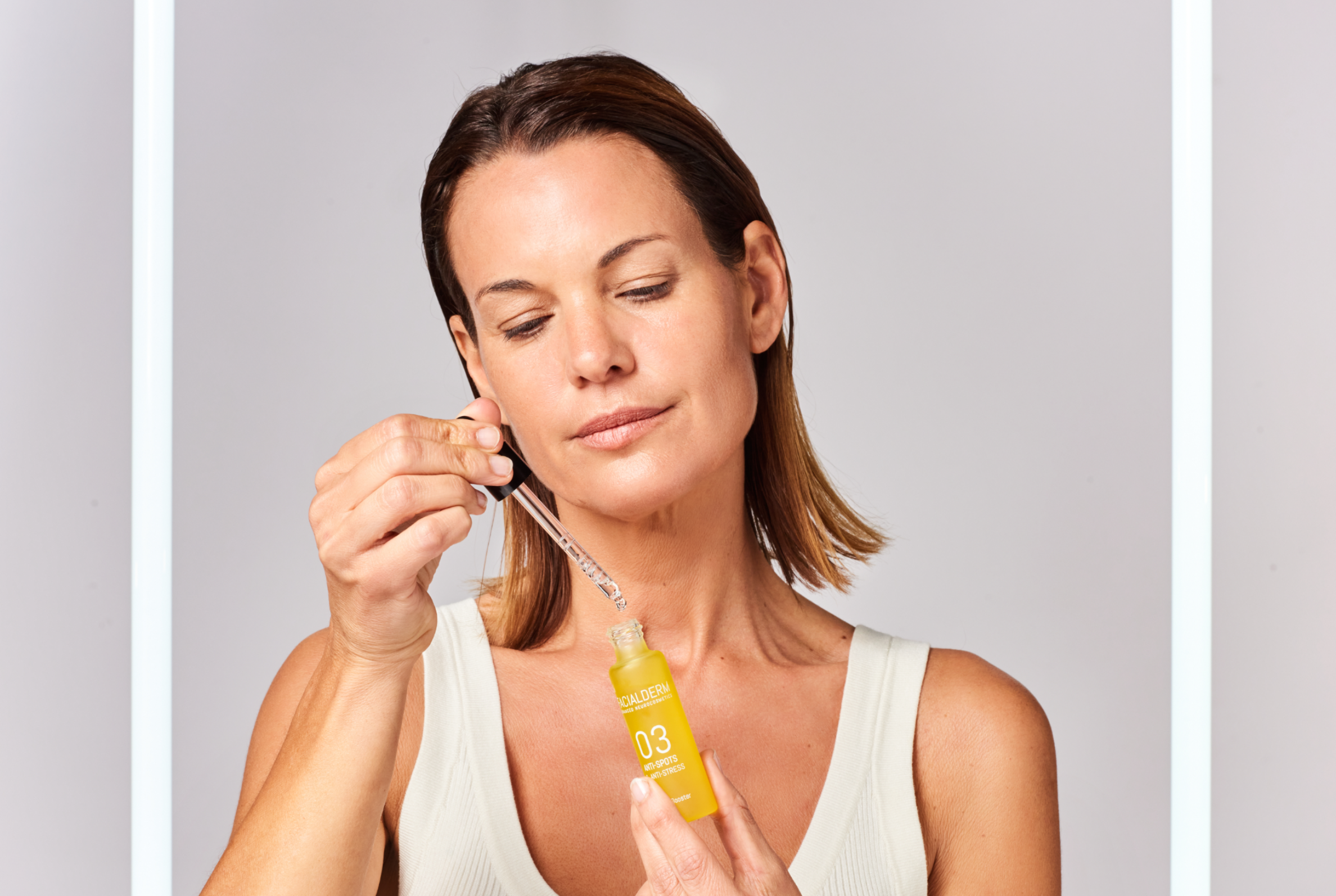Cosmetic terms to better understand what is happening to your skin and what it needs
Hyaluronic Acid:
Natural component of the dermis that contributes to the hydration, elasticity and firmness of the skin.
Anti-pollution:
Most of us live in large or medium cities and are subject to very high levels of pollution. The skin is damaged. Exposure to pollution over the years accelerates oxidative stress on cells, resulting in premature cell aging. In response to this need, specific cosmetics have been created to prevent and cure the effects of pollution on the skin. In response to this need, specific cosmetics have been created to prevent and cure the effects of pollution on the skin.
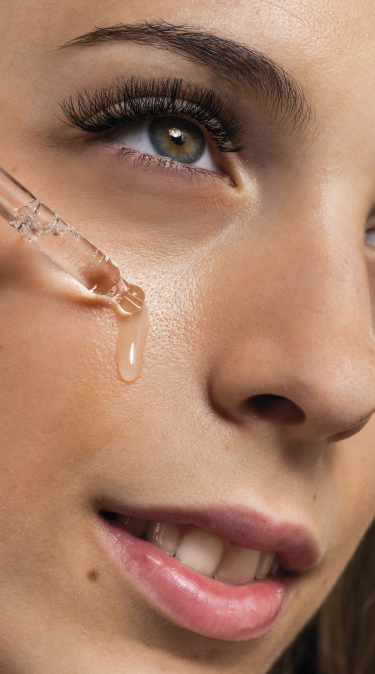
Beta-endorphins:
Hormone and endogenousopioid neurotransmitter produced in the central nervous system. It acts mainly as a pain moderator,reducing the transmission and effectiveness of sensory stimuli. They are essential in the fight against facial stress, since they stimulate the synthesis of b-endorphins, improving skin comfort, as well as redness.
Cortisol:
Cortisol (hydrocortisone) is a steroid hormone, or glucocorticoid, produced by the adrenal gland. It is released in response to stress and a low level of glucocorticoids in the blood.
Facial Stress:
Stress causes premature aging of the face, especially in women, whose main visible signs are dry skin, decreased luminosity, redness, flaccidity, increased acne or eye bags.
Blue light:
Apart from the sun, which is the main source of blue light, there are many indoor man-made sources of blue light, including fluorescents, LED lamps and flat screen or mobile TVs.
Display screens on electronic equipment, laptops, smart phones and other digital devices emit significant amounts of blue light. The amount of HEV light that these devices emit is only a fraction of that emitted by the sun, but the amount of time people spend with them and the proximity of these screens to the user’s face concerns many eye doctors and other health professionals about the potential long-term effects that blue light can have on eye and skin health.
Spots:
Irregular skin pigmentation (or hyperpigmentation, as it is usually called) is a common skin problem. Age spots (also known as solar lentigines or senile) or dark areas of skin often appear on the face, hands, and other parts of the body normally exposed to the sun.
Sensitive skin:
People with sensitive skin suffer from very unpleasant symptoms on their face, which may (or may not) be accompanied by erythema (redness). Symptoms may include tingling, tightness, warmth or even burning, and much less often, itching. It is very common for them not to tolerate the application of cosmetic products to the face well.
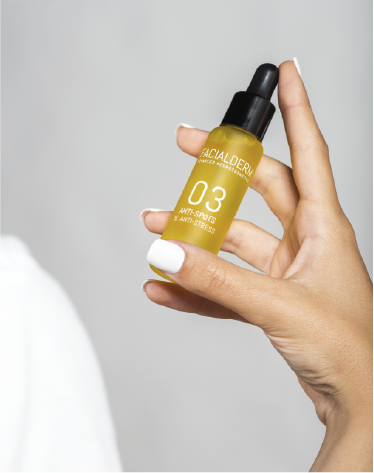
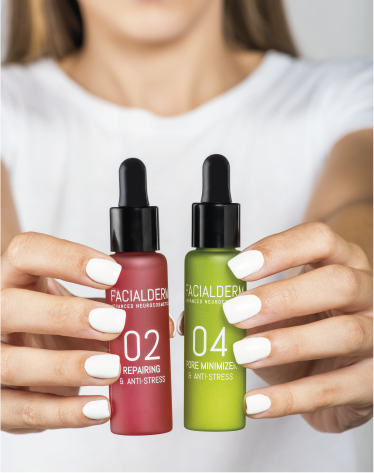
Large Pores:
Large pores are a problem that concerns many women. It gives the skin an unattractive appearance. When we have a large pore, our skin does not look thin, it looks dull and it tends to get dirty more easily. The problem is that it is very difficult to close the pore or to shrink it when it is too large. In addition, the dilated pore tends to retain more make-up and even dirt, and in the case of oily skin.
Redness:
Some symptoms of sensitive and reactive skin are redness and small blood vessels visible on the face, often temporary. However, this phenomenon can worsen over time and the skin manifestations can become permanent.
Serum booster:
Serum boosters can be mixed with each other to create the best custom formulas, according to specific needs.



